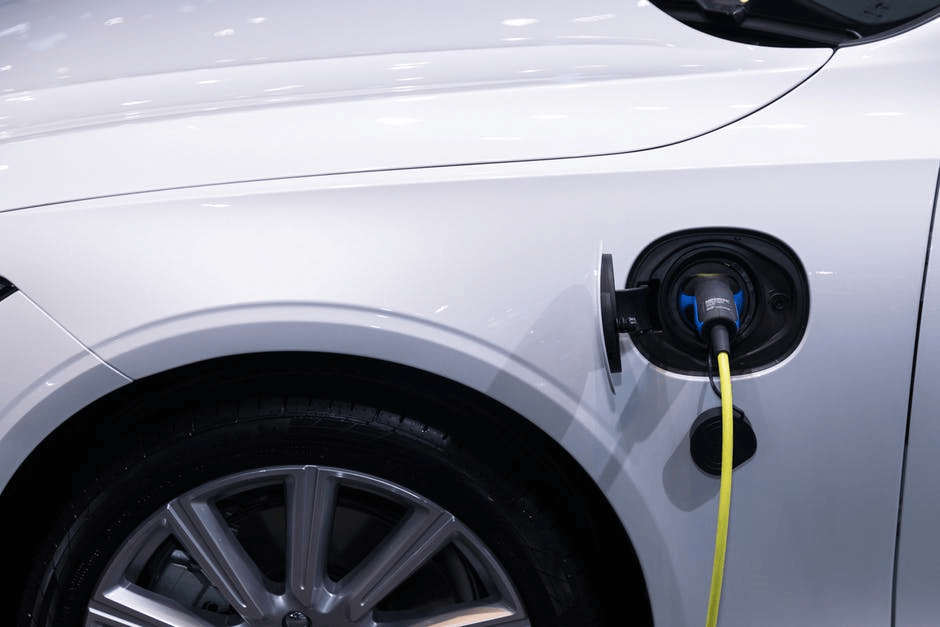As you sit in your hybrid quietly, enjoying the hum of your engine, you may wonder, how long do hybrid batteries last anyway?
You may already know the lifespan of a car battery, but a hybrid battery is different. Keep reading to learn how long you can expect your hybrid battery to last and what you can do to extend its life.
How Long Do Hybrid Batteries Last?
A hybrid battery will save you thousands of dollars in fuel each year. Others run to the gas stations to fill their tanks. You plug your car into the outlet in your garage and visit the pumps half as much as your neighbor.
You will eventually have to pay something, though, to either repair or replace the expensive hybrid battery that has served you so well for thousands of miles.
Most hybrid car manufacturers say a hybrid battery lasts 80,000 to 100,000 miles. However, with the right maintenance and basic auto repair, hybrid owners have reported some batteries lasting up to 150,000 miles and even up to 200,000 miles.
In those cases of big mileage on the hybrid battery, a car owner typically drives the car for 5 to 15 years.
What Affects Your Hybrid Battery Life?
The lifespan of your battery depends directly on how much you drive your car. For example, if you’re an Uber or Lyft driver, you’re most likely driving your car several hundred miles a week. The same applies if you’re a salesman or a road warrior where your car doubles as your office.
Compare a salesman who drives his car a hundred miles a day with a daily commuter who drives twenty miles a day. A road warrior will be cycling his hybrid battery more than a short commuter. More cycles in a shorter amount of time mean the battery will wear out faster.
If you’re only cycling your battery a few times each day during your commute, your battery will seemingly last much longer.
Age Matters
You may need to replace your hybrid battery in as little as five years from the time you purchase the battery new. However, the timeframe depends largely on how you use your car.
Cars used for long trips daily will need a battery replacement in as little as five years. However, if you use your car privately and do not take it on long road trips regularly, your battery could last as long as 10 or 11 years.
Milage Matters
Age is just a number. The amount of miles you put on your battery determines battery life just as much as age.
For example, a 2005 Prius with 150,000 miles will have a better battery in theory than a 2011 Prius with 150,000 miles. The 2011 car has run more cycles over a shorter period. This means the 2011 Prius has endured more intense cycling over a shorter period.
So the driver of the 2011 car ran the Prius harder, and thus its battery has taken a beating more than the 2005 Prius.
Is Your Battery Balanced?
Hybrid batteries fail for a handful of reasons. Often they fail because individual cells are not balanced with other cells.
For example, a typical 20-series Toyota Prius has 28 individual cells with around 6500 mAh, or milliampere hours. The battery’s capacity will breakdown over time to as low as 1500 mAh.
The breakdown, however, does not happen evenly all the time. Some cells may drop as low as 1500 mAh, and others could still be as high as 5000 mAh.
If you have unbalanced cells, the hybrid battery will fail you more quickly than if you have a battery with balanced cells.
Do You Service Your Hybrid?
Hybrid vehicles have two different power systems that work in conjunction with each other: an electric battery and a petrol engine. If your engine is not performing efficiently, then it will use more fuel than necessary. Your fuel mileage will go up.
Your hybrid battery will have to work harder if your engine isn’t doing its job. As a result, your hybrid battery will wear out sooner if you do not service your engine regularly.
Ironically, if you have a vehicle, like a Prius, that is typically pretty good mechanically, you’ll be tempted to not have it serviced it as regularly. After all, the engine will sound good, like it does not need a mechanic’s touch regularly.
As a result, though, your Prius battery could wear out faster. If you put your car on a regular maintenance schedule, your battery will last longer.
If you’re using your car for work, like an Uber, or if you drive your car long miles for work, you should have the vehicle serviced every 5,000 miles. If you use your vehicle for shorter commutes, then have it serviced every 6,200 miles.
Toyota estimates a hybrid battery will last around 8 years. The way you treat your car will best determine how long the battery lasts.
The cost of regular maintenance may discourage you from taking your car into the mechanic on a scheduled basis. However, look at the cost of replacing a battery. This should encourage you to spend a few dollars regularly on maintenance to keep your hybrid battery lasting as long as possible.
If you’re looking at purchasing a used hybrid, consider having your battery reconditioned and rebalanced from the start. A preventative reconditioning and rebalancing will give you a hybrid battery the longest life possible.
Recharge Responsibly
Your recharge time also affects the life of your hybrid battery. The more you recharge a hybrid battery, the more quickly it will stop working. However, conversely, the more you drive, the more quickly your battery dies.
Pay attention to the manufacturer’s suggested charge time. Do not charge any less or more than what the car manufacturer recommends.
Think about your car battery like your phone battery. It worked wonderfully, holding a charge for more than a day when you first purchased it. Now you need to plug it in by mid-afternoon because the battery is dying.
Your car battery is no different. Over time, it will hold less of a charge and need more charging. But to maximize what you have now, charge it only as much as you need to.
Weather Matters
Extreme cold and extreme heat negatively affect the lifespan of a hybrid battery.
Owners have discovered that hybrid engines work less efficiently in cold weather than they do in moderate temperatures. If you live in a cold climate, you understand the need to start your car to warm it up before you drive off somewhere. In extremely cold climates, car owners typically let their cars run anywhere from 15 to 20 minutes before they back the car out of the driveway.
Hybrid engines take a while to warm up in extremely cold weather. Starting a car early, though, will only warm up the gasoline engine. Hybrid owners report that they need more time than a typical car owner to warm their car up on extremely cold mornings.
Even then, once the car is ready to go, the engine typically runs below maximum fuel efficiency.
Snow and ice, in general, are hard on hybrids as a whole. Snow requires a heavier vehicle with more rolling resistance than what a typical hybrid tire has.
As a result, a hybrid has to work harder to move through snow, and a hybrid owner will find himself having to put gas in the tank more often.
Additionally, in a snowy environment, road maintainers use snow-clearing chemicals to keep the roads clear and dry. These chemicals will build on on the outside of the vehicle and can block the grill of the car. As a result, the engine cannot breathe as well, and the hybrid again suffers from poor fuel economy.
If you live in an extremely cold environment, your battery will not freeze. However, your battery may not last as long as if you lived in a temperate environment.
Hybrids do not like extremely hot weather either.
A hybrid battery can begin to deteriorate with temperatures at 110 degrees. Make sure your hybrid battery is well ventilated. Some hybrid cars have batteries located under their passenger seat, and thus the air intake in the car serves to keep the battery ventilated.
Thus you need to make sure you have a clear air filter in your vehicle at all times.
How to Extend Your Hybrid Battery Life
While a battery on average lasts around 8 years, some batteries last as long as and beyond 10 years. The way you treat your battery could easily affect its lifespan.
Maintain a Schedule
A hybrid does not require any more maintenance than a regular non-hybrid car. So put your hybrid on the same maintenance schedule you would put a non-hybrid car on.
Owners can easily neglect a maintenance schedule, especially if the car appears to run smoothly or if things are a little tight financially for a month.
Do not neglect regular maintenance. Replacing a hybrid battery will cost anywhere from $1,000 to $6,000. This is a far bigger price tag than a regular maintenance appointment for your hybrid.
Once your car and battery are more than 8 years old or have more than 80,000 miles, have your battery diagnosed. then plan on taking your car into the mechanic every 12 months for a regular battery checkup.
Keep the Battery Cool
You should have an auxiliary battery system in your hybrid that keeps your battery cool. Clean this auxiliary fan regularly. Oil residue typically coats the fan blades, and dust sticks to that oil. As a result, dust will accumulate and block the airflow to your battery.
A warm battery has a shorter lifespan than a cool one. Keep your auxiliary fan clean to lengthen your battery life.
Screen Your Battery
Regular vehicle maintenance will keep your petrol engine running smoothly, and this puts less stress on the electrical battery. To keep your battery in check, have the service shop check the health of your hybrid battery regularly as well.
If you have weak cells, an auto service shop with hybrid experience can recondition a battery to bring the cells back to nearly 97 percent of their original strength. A basic reconditioning can save you thousands of dollars in a new battery.
If you’ve waited until the check engine light is on, you’ve waited too long, though. Do not wait until the dashboard lights up. Take your car in for a checkup today.
Why Do Some Batteries Last Longer?
If you’ve ever wondered why your neighbor’s hybrid battery always lasts years longer than yours, there is a reason. Some batteries are just made better than others. However, some people just know how to make their battery life stretch.
Auxiliary Fan System
The temperature of your battery helps maintain its life. A good auxiliary fan system will keep the battery cool. It pumps fresh air in over the battery to keep its temperature down.
Battery Detection Software
Some manufacturers have designed software to say a battery is low when it has not yet reached zero. Manufacturers claim that there’s a sweet spot for maximum battery recharge capacity. If you do not let the charge get below 20 percent or above 80 percent, you have hit that sweet spot.
Any lower than 20 percent is too low, and any higher than 80 is too high. So companies have designed software to tell you to recharge your battery when it gets close to 20 percent so you do not let it dip below that number. The same software will tell you that your battery has reached full capacity at 80 percent.
What About a Prius Battery Life?
A Toyota Prius is a prime example of why hybrid cars work. Toyota boasts that the battery should last the lifetime of the car. Regardless, it should last for at least ten years or more than 150,000 miles.
Best of all, you have options when you replace a Prius battery. You do not have to plan on forking over $4,000 for a new battery but can select from reconditioned batteries.
The Longest Lasting Battery
Now you can answer the question, “How long do hybrid batteries last?” Best of all, you know what you need to do to get your battery to its fullest life capacity.
If you’re looking for a mechanic who can maintain and service your hybrid, make an appointment with us or just check out our services.





